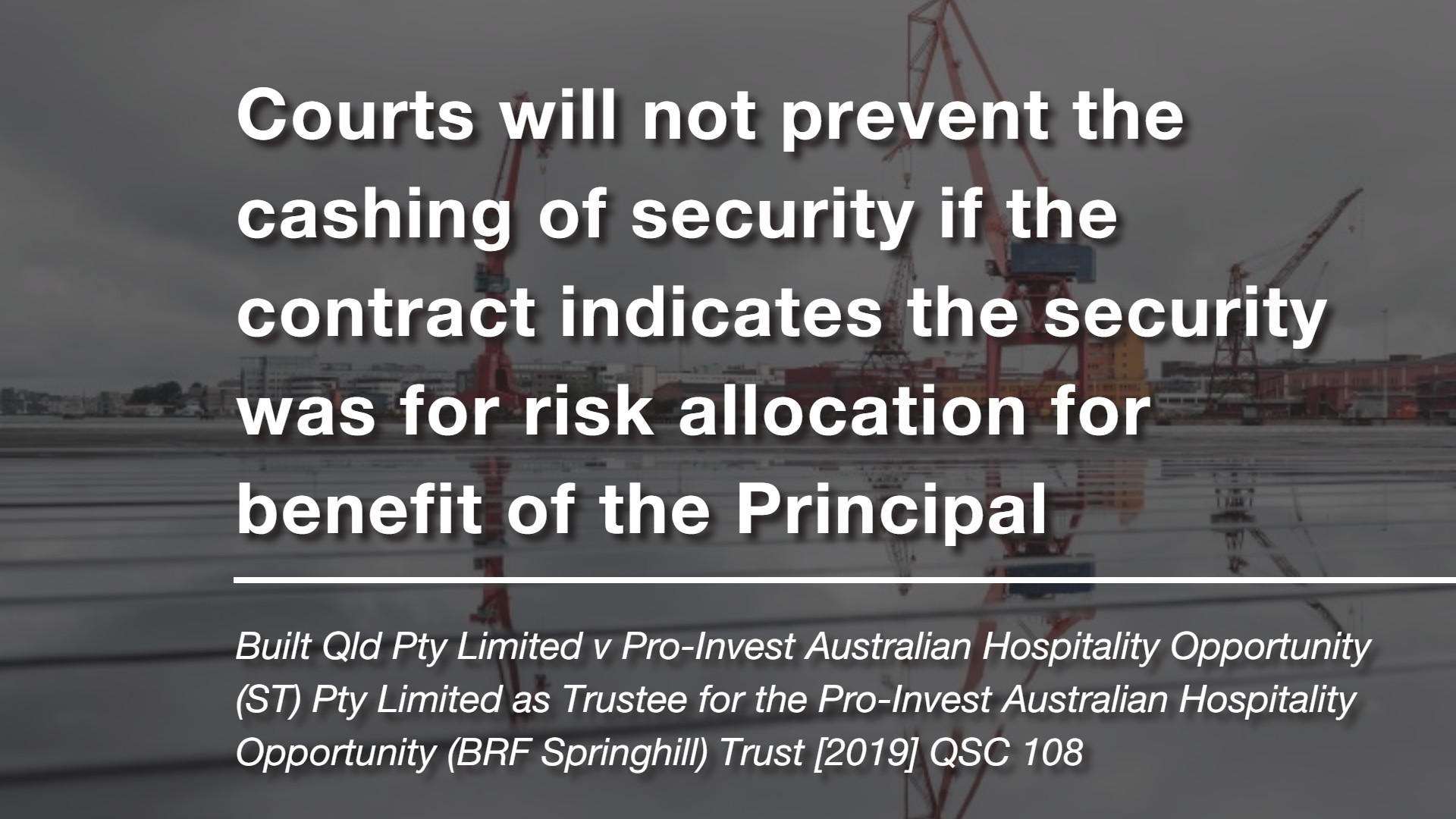In Built Qld Pty Limited v Pro-Invest Australian Hospitality Opportunity (ST) Pty Limited as Trustee for the Pro-Invest Australian Hospitality Opportunity (BRF Springhill) Trust [2019] QSC 108, the Court refused to grant an injunction to prevent a principal from calling on the builder’s security (allegedly for the costs of rectifying defects) on the basis that the security had been provided as a risk allocation mechanism for the benefit of the principal, pending final resolution of the dispute.
In reaching this conclusion, the Court relied heavily on the wording of the contract, under which the builder expressly agreed that it would have no entitlement to obtain an injunction preventing the principal from having recourse to the security.
The “no injunction” clause provided that:
“…the Contractor shall have no entitlement as a consequence of the conversion of a security into money…the Contractor has no entitlement to obtain an injunction preventing the Principal from converting security…”.
Justice Martin held that the “no injunction” clause was an indication that the builder had agreed that the security was, in effect, a risk allocation device for the benefit of the principal, and upon the proper interpretation of the contract:
- the contractor had “given up any right to injunctive relief on that ground, in a bargain which the Court should respect”; and
- “a court ought not too readily favour a construction which is inconsistent with an agreed allocation of risk as to who is to be out of pocket pending resolution of the dispute…”.
Accordingly, the Court would not intervene where there was, in effect, a factual dispute as to whether the principal was entitled to have recourse to the security.
What does this mean for you?
Security is generally provided under construction contracts for the purposes of security that the contractor will perform its obligations under the contract or reducing the principal’s risk of loss in the event of a dispute.
If, on the proper construction of the contract, the security has been provided for the second purpose, the principal will generally have broad rights of recourse to security. This case is an important reminder for both developers and contractors that the wording of the contract will be the decisive consideration for the Court in determining which purpose the security was given.



